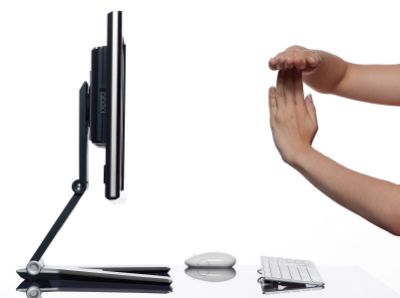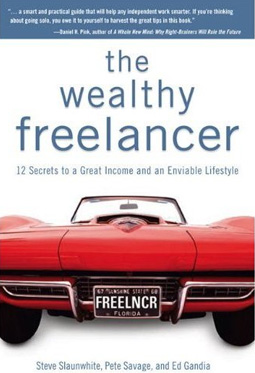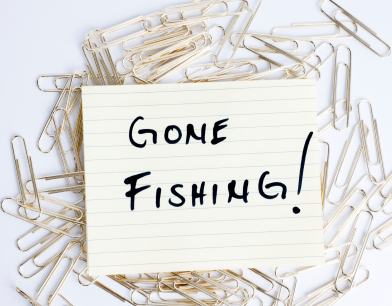I daydream a lot about leaving the area where I’ve been living for the past 31 years. I think of going back to Graz, Austria, for an extended stay. I beg my husband to consider moving up to Boston. When he shoots down that idea, I suggest relocating just a couple hours away to a charming small town in Central Jersey.
“I’ve lived here my whole life!” I tell him. “I want to live somewhere because I chose it for myself… not because I happened to be born there!”
Unfortunately, Michael has a full-time office job in NYC, so we have to stay put. At least for the moment. Which is why I have to live vicariously through the life experiences those like fellow YEC member Colin Wright, who runs his own branding studio while traveling the world. In fact, he travels to a new country every four months.
After reading his latest ebook, My Exile Lifestyle, it occurred to me that Colin might have a lot of wisdom to impart to you guys, on entrepreneurship, maintaining professional networks, and living location independent.
Do you feel that your experiences have made you a better entrepreneur? How?
Hell yes! It’s my belief that being a good entrepreneur is about being hardy, flexible, creative, and curious. Long-term travel really thickens your skin. You have to deal with the bad as well as the good, and you get quite accustomed to uncomfortable situations. Few long-term travelers make it very far without learning to roll with the punches and adapt to strange and novel situations, and that’s something that definitely carries over to the entrepreneurial realm.
Also, you generally don’t travel this way without already being curious, but every answer I find brings with it two more questions, so I’ve found myself becoming more and more interested in EVERYTHING the more I explore. This is a trait that has helped me to a ridiculous degree with my businesses.
What has been the toughest aspect of being location-independent?
Relationships are tricky, because the people you meet know they will only have you in their day-to-day lives for a certain period of time, and therefore may be reluctant to invest much time in you. That’s not always the case, and a lot of people embrace the idea of long-term relationships that take place either online and in real life, in different countries, but it does weird some people out, and there have been a lot of missed opportunities because of it.
I wouldn’t give it up, of course, because new opportunities arise as a result of what I’m doing, but there have been a few moments where I’ve questioned things briefly because of this.
How do you suggest that other location-independent entrepreneurs remain connected to their network, and to their target audience, while on the move?
It’s all about making yourself available — to the extent you want to be available — and creating platforms through which people can access you and your ideas.
For example, I always have a phone number in the countries I travel to, but I also have a Skype number and a Google Voice number for texting in the US. I also try to encourage email contact, and endeavor to get back to people who do email me within 24 hours.
I keep my inbox tidy, of course, but I also try to give people the info they need before they email me by creating products (like ebooks) that convey many of my ideas. My blog serves the same purpose. Rather than explaining the same things over and over, I’m able to write it once, and the connection with my audience is maintained.
Social networks also help quite a bit, as I can keep tabs on what my friends and family are up to on Facebook, and quickly convey information on Twitter.
How do you feel your introversion has affected your ability to start over in a new place every few months, and how do you cope with / manage this particular aspect of your personality?Â
It’s something I’ve dealt with for quite a while, and I’ve had the chance to recognize when I need to recharge, and when I’m good to be social. I’ve gotten quite adept (through practice) at forcing the social side of things, too, though I’m incredibly exhausted afterward when I have to do that too frequently.
Because I tend to live alone, though, and because I have a good amount of alone time when I arrive in a new place, I actually don’t have too much trouble making new connections. There’s something about moving and having a new city to explore that gives me a boost and keeps me motivated to get out and talk to people.
You write about extreme minimalism… sort of a must when you’re constantly traveling. Do you have any tips for others who are looking to eliminate the inessentials?
The point of minimalism is eliminating the stuff you’re not passionate about and spending your time, energy, and resources on things that make you giddy. That’s it.
It can be tricky to do this in practice, though, and I’ve found the most success when I have a project that gives me the excuse to break habits and try things out. This seems to help with all the little voices that whisper No, you can’t get rid of that. Your parents gave you that card, and it’s sentimentally important. You know, of course, that the card is not in itself important — your parents and their feelings toward you are — but we’ve been programmed to give things sentimental value instead of the sentiments themselves.
A good place to start would be to go through your clothes and discard anything you haven’t worn in four months. Then, anything you haven’t worn in three months, and on and on, until you’re rid of all the stuff you don’t wear. The feeling you get from clearing out this kind of mental and physical space is enough to give most people the momentum to go on a life-cleaning frenzy, but if that’s not enough, just remind yourself what you’re working toward: more of what you care about, and less of what’s keeping you from it.
And do you have any tips on being financially savvy when you have to consistently come up with the money for travel and lodging? What are some suggestions you have for saving your moolah?
Something that surprised me is that unless you’re staying in 4-star hotels all the way, and doing nothing but eating out for every meal, it’s actually cheaper to travel full-time than to live in a big city. The money I spend on plane tickets and furnished apartments is the money I would have otherwise spent on gas, car insurance, a townhouse, furniture, electricity, etc.
A quick tip I would offer is to make sure that your banking situation is set up so that you have a way of accepting payments online, and that said method is attached to a bank with a high-yield checking account that pays your ATM fees all around the world (there are a few banks that have this, but I use Charles Schwab).
What did you gain from your time in each place that made it all feel worthwhile?
I feel like I walk away with so much more than I came with in each country I visit, to the point where it’s tough to even pinpoint individual items.
Perspective is a good way to summarize some of it. Being able to see things from a similar angle as the locals of a given country is a HUGE asset, and one that has made me a much better person.
Relationships are also very important to me, and I always leave with dozens of new friends, and usually one or two people who are more than just friends. People spend their whole lives trying to find like-minded folk, and I’m fortunate enough to find them everywhere I go, because I cast a wide net, and geography isn’t as much of an issue.
One of my greatest pleasures in life is having new experiences, and traveling to these countries has filled a significant portion of my day-to-day life with new experiences. Every time I try something new, I have a better big-picture view of the world, I’m much more capable of prioritizing and figuring out what I value and think about things, and I’m much more capable of adapting to future novel situations.
What has been your favorite experience so far? Your least favorite?
It’s hard to pick just one, but one of my favorites was playing naked Frisbee and lounging in the natural hot springs in Iceland during the Summer Solstice with a beautiful girl I was dating and a circus performer who did some fire-breathing, which looked really cool in the fog that shrouded the area.
Worst was probably almost getting mugged in Buenos Aires. I escaped, thankfully, after throwing an awkward punch at one of my assailants, but it could have gone VERY wrong, and it was a huge wakeup call for me.
Related: In Favor of Freelancedom: You Can Do It Anywhere










 Last week — while in the midst of ghostwriting an ebook, and having just landed another, regular blog ghostwriting gig — I posted about my writerly motivations, and about
Last week — while in the midst of ghostwriting an ebook, and having just landed another, regular blog ghostwriting gig — I posted about my writerly motivations, and about